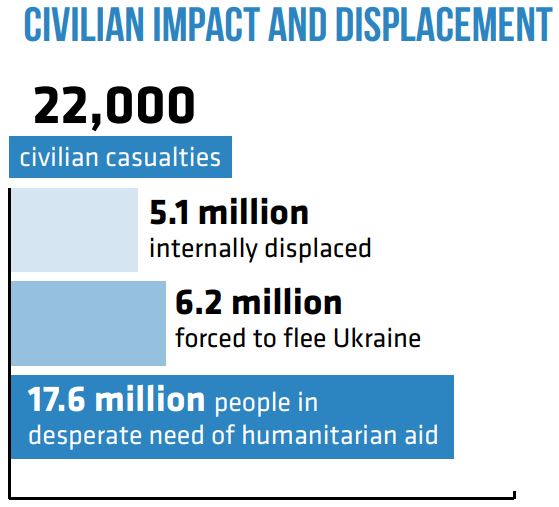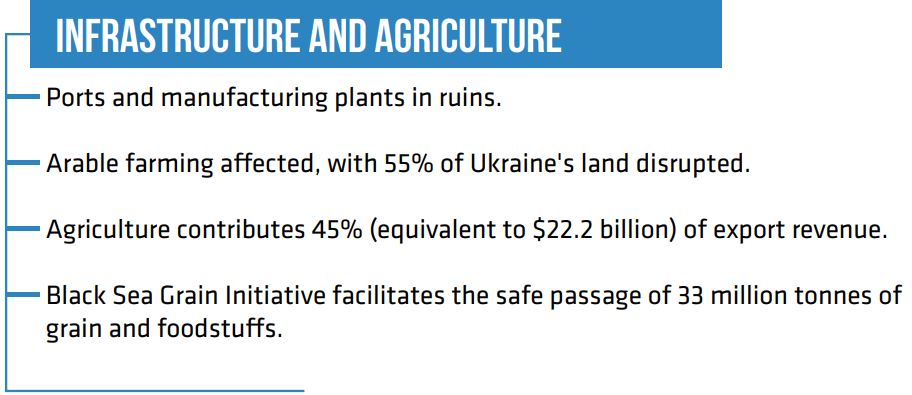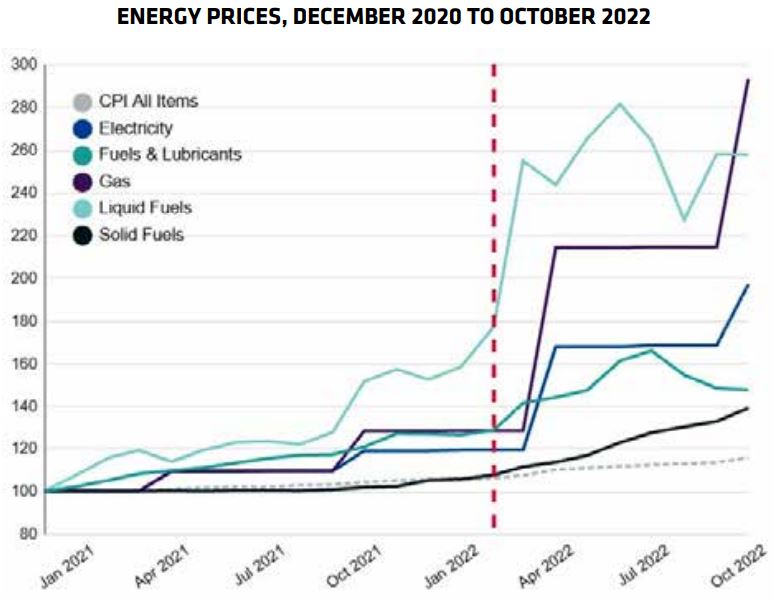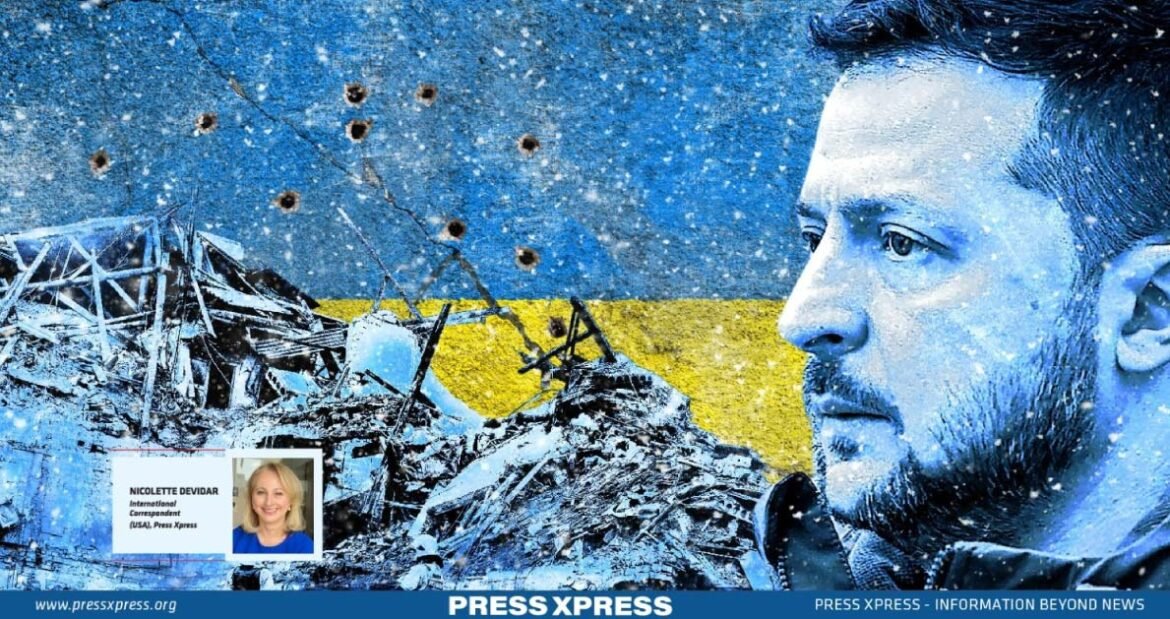As the annual “elite” fabfest in Davos came to a close with a lackluster outlook about the forum’s future as it’s losing its magnetism and interest from people around the world, Ukrainian President Zelensky finds himself in a somewhat similar situation.
As regular people are increasingly realizing that globalism in the sense of a perceived few ruling the many might be counterproductive – so is the world getting tired of Zelensky and the endless war in Ukraine. His stance at the WEF in Davos spoke a loud language: the usual more animated fighter Zelensky appeared rather subdued; and stayed away from his public appeals for more weaponry. Perhaps, reality is beginning to sink in.
You Can Also Read: CRISIS IN ISRAEL: NETANYAHU’S LEADERSHIP AT RISK
The general consensus is that Zelensky overplayed; the pressure on the US Congress to fund Ukraine was too much. And not just in the US. In Europe, voices grow louder, too, to force Ukraine and Russia to the negotiating table as it becomes clearer and clearer to even war-supporting administrations that it’s unlikely that Ukraine can win going forward as is. So, finally, what opponents of the humongous funding of taxpayer money to Ukraine have advocated for all along – namely putting more pressure on both sides to negotiate for peace instead of more weapons – is becoming a practical reality.
‘If you really want peace, you don’t negotiate endlessly for more weapons’
Back in December, about three in ten Americans (31%) said that the US is providing too much assistance to Ukraine, according to Pew Research. Half of Republicans oppose more funding; numbers that may have likely slightly gone up since then. With the US elections coming up, where it’s not just about Ukraine, but getting the US going in the right direction — which right now 76% of Americans (ABC News/Ipsos poll) say it’s not – more Ukraine funding is indeed uncertain.

“The United States is out of money for Ukraine unable to send the ammunition and missiles that the government in Kyiv needs”
For the first time, on Tuesday, the Biden administration came up empty-handed as host of the monthly meeting of about 50 nations that coordinate support for Ukraine.
President Biden’s top aides told lawmakers in a private meeting last week that if “Congress fails to authorize additional military aid for Ukraine in the coming days, Russia could win the war in a matter of weeks – months at best”.
To date, the US has provided more than $75 billion for Ukraine. Taxpayer money – money that Americans feel could have been much better spent at home in the US. With Donald Trump likely being the Republican nominee — the tone is shifting.
The American people are getting tired of endlessly funding missions abroad while the US has issues at home. Such as the border, rising crime, homelessness, mental health crises, and more.
In addition, with growing awareness of the roots of conflict in Ukraine, its multi-ethnic complications underlying century-long conflict, and distrust in Western governments by their own people, there’s a growing resistance among the general population in the US to provide more of their tax dollars to Ukraine. On top, fewer Americans see Russia’s military power today to be a critical threat to vital US interests: while in 2022, 54% of Americans considered Russia’s military power vital to US interests, by 2023 it was down to 46%.
A snapshot of Europe shows similarly: e.g. 57% of Germans oppose sending Taurus missiles to Ukraine. In Italy, opposition to military aid has grown from 32% to 39% in 2023, according to Public Opinion, to name a few.
If the US and European countries had a direct referendum and let the people decide – likely, there would likely be less money for wars abroad, certainly in the current financial landscape. A fact that more populist-leaning parties and their leaders capture.
While at the beginning, there was wide public buy-in to the media narrative of “bad Russia” in the US and Europe – the public’s acceptance of the simplified narrative of “good side – bad side” is waning. Indisputably though, Russia’s march into Ukraine was an aggressive invasion and violation of a sovereign state; the largest attack on a European country since WWII.
Since the onset of the conflict, the U.S. has provided both military and financial assistance to Ukraine including the provision of military equipment, training, and advisory support. The U.S. has also allocated billions of dollars in foreign aid to Ukraine, with a portion of it going toward funding the war effort.
As Zelensky never ceased to ask for more weaponry (until now) instead of focusing on serious, reasonable peace talks – one got the impression that it never was about coming to an agreement. Or perhaps Zelensky doesn’t know how to take on another role? In other words, his personality may have gotten in the way.
Like people with narcissistic traits and a strong recognition orientation who can only think of completely destroying the other party, Zelensky seems to have a hard time moving on in the direction of post-war as well. Perhaps Davos helped a bit in that regard:
As it becomes clear that public funding may dry up, or take much longer to get approved, Zelensky needs to look elsewhere: private investment to rebuild Ukraine. A daunting challenge. Where better to ask than the global pocket string holders congregating in Davos. There, however, Zelensky received a rather cold reception.

Taxpayer money to fund wars; private money to rebuild during peacetimes
Investing to rebuild what is destroyed is normally a banker’s feast. We all know that serious money can be made from rebuilding war zones. But private money is much harder to come by; there are strings attached, conditions and rules to play by, and most above all: low-risk needs. The bankers, who usually thrive by financing both sides, (so they always win one way or another), must have told Zelensky that in order to get private money – he’s going to need peace.

Public money is for financing wars – private money is only during peaceful times. A reality that was likely conveyed to Zelensky in Davos by the big-money power holders of Black Rock, Bridgewater, and JPM. Reason enough for a more somber attitude, given the huge challenges Zelensky is facing at home.
HOW DID ZELENSKY‘S STAR POWER COME TO A HALT?
Well, once upon a time, in a world captivated by his charm and wit, there existed a rising star named Zelensky. His journey from a popular comedian to the President of Ukraine had been nothing short of remarkable. The people of Ukraine had placed enormous hope in him, believing that he would bring about positive change and address the country’s long-standing issues.
At first, Zelensky’s presidency was met with overwhelming enthusiasm. His promises of transparency, economic growth, and an end to corruption resonated with the citizens, who eagerly awaited the transformation that was pledged. The world, too, admired Zelensky’s charismatic personality and his refreshing approach to politics.
However, as time passed, the initial excitement began to dissipate. The people grew weary of the constant theatrics and lack of tangible progress. Many started to question Zelensky’s ability to enact meaningful change, feeling that his presidency was more about entertaining the crowd than addressing pressing issues.
Despite his popularity, Zelensky’s incessant comedy sketches and public stunts no longer held the same appeal. The world became tired of his grand performances, desiring substance over spectacle. They yearned for a leader who would deliver on their hopes and dreams, rather than simply providing entertainment.

As disappointment swept through the country and beyond, the world waited for concrete actions that would match Zelensky’s words. They longed for effective policies to combat corruption, boost the economy, and improve citizens’ daily lives. Yet, it seemed as if Zelensky was trapped… And herein lies the rub.
Entertainers entertain. Every entertainer has something they perfected. In Zelensky’s case, the war hero. But as the support for the war changes, another side needs to come out: That of a peacemaker. A realist. A leader who stops acting and starts delivering. Who is more substance and can flex in various directions.
Transformation is an easy word – in fact, the word of the moment — for many politicians and leaders. Yet, transformation always contains an element of death and rebirth (in a spiritual sense, not a physical sense). Something that must be let go of for something new to come about. A habit, a way of thinking, a way of being, a focus. It’s the very essence of transformation. One cannot hold on to the strings of what is during the transformation process. This is where most leaders fall short. It is when they realize that transformation may not have been really what they thought it was at the onset.
As with Zelensky, most people have perfected one particular aspect of themselves and then fall short of adapting when times change. It’s normal human behavior and perhaps the world shouldn’t be too hard on him for that matter. Overall though, Zelensky fatigue is a stark reminder that there is a time and place for everyone, political leaders or normal citizens. Winston Churchill made that same discovery. And when that time and place has converged, something new may be required. Then you know, it’s time for a new chapter. After all, change is the only constant in life. — A paradox itself.


